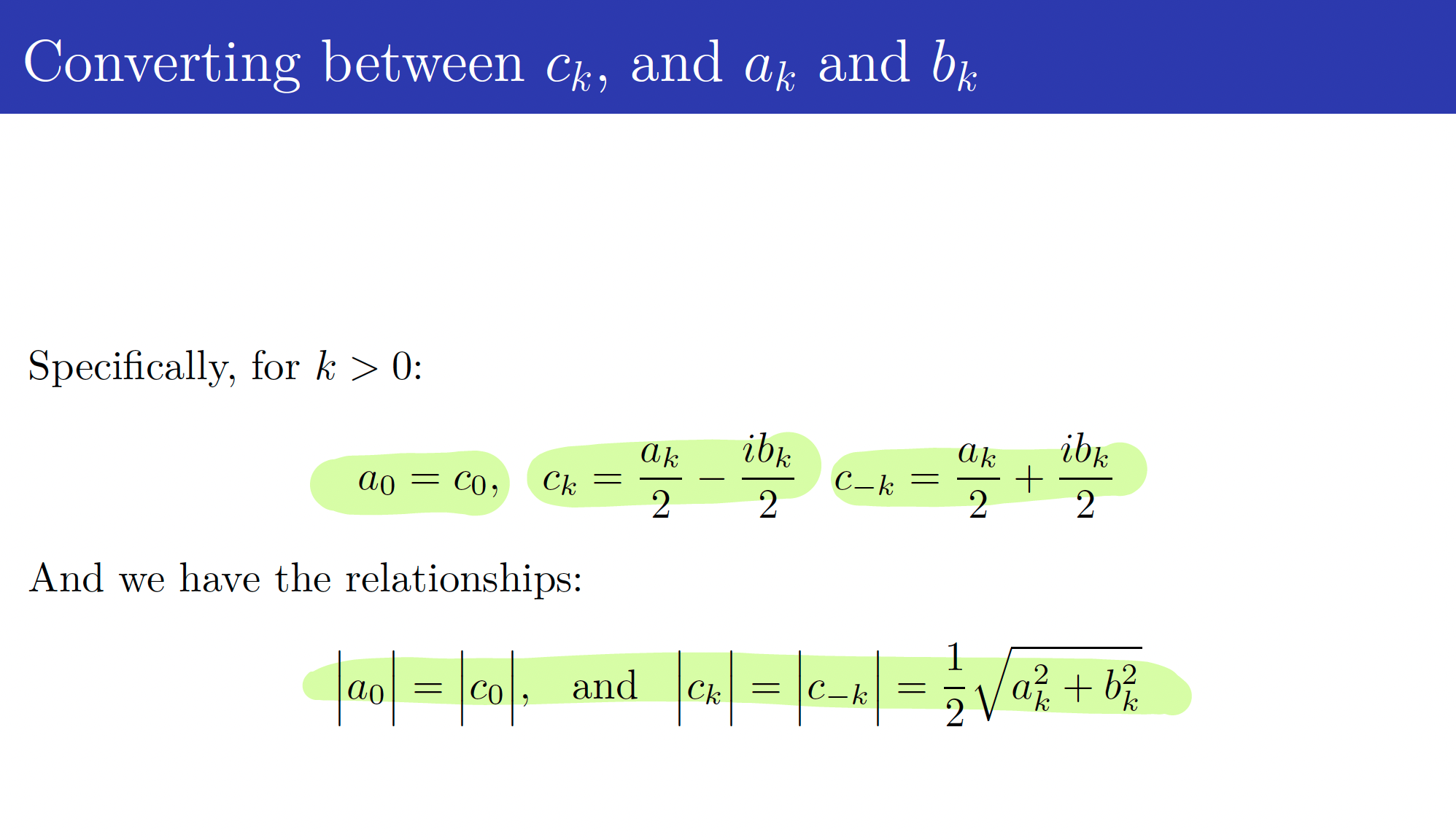Fourier Series
We can write any periodic function over a period as
- If , it simplifies the expression
with coefficients are given by solving the following integrals:
Now, given the above sinusoidal expression of a function (with period )
we can express it more concisely using Euler’s Formula as where the coefficients are complex numbers.
But can you express
c_kas a sum ofa_kandb_k?Yup.
Approximation
An approximation of a function could be achieved by truncating the series to a finite number of sinusoids:
For points (assume is even), we will use degrees of freedom (i.e., coefficients) to exactly interpolate the data.
Plugging in each of our data points into the expression will give us equations, involving unknowns coefficients, . This leads us to the Discrete Fourier Transform!
From MATH213
See L2 Function.
We want to write for
Our goal is to find .
Definition 3: Fourier Series - Complex Form
If then the Fourier series in complex form of is where the are found by projecting into the basis of complex exponentials.
Theorem 3: Fourier Coefficients for Series in Complex Form
If then the Fourier coefficients of are
If is real valued than .
- I was so confused for a second, but is the Inner Product
Theorem
For a real valued, periodic function :
- If is an even then the Fourier series can be simplified to a sum of waves.
- If is an odd then the Fourier series can be simplified to a sum of waves.
Theorem 2: Fourier Sine and Cosine Coefficients
If is a real valued function that is in then
If is even then the Fourier cosine series for is where
If is odd then the Fourier sine series for is
where
- It’s a little hard to memorize this. Instead, memorize theorem 3 and derive it
Convergence of Fourier Series
See PWC1.
Theorem 5: Convergence of Fourier series
Let be the Periodic Extension of a function .
- The Fourier series of converges in the norm (also in the mean and almost everywhere) to (and also ) on any finite subinterval of .
- If is piecewise then the Fourier series of converges pointwise to for all
- If is piecewise and continuous then the Fourier series of converges uniformly on any finite interval of .
